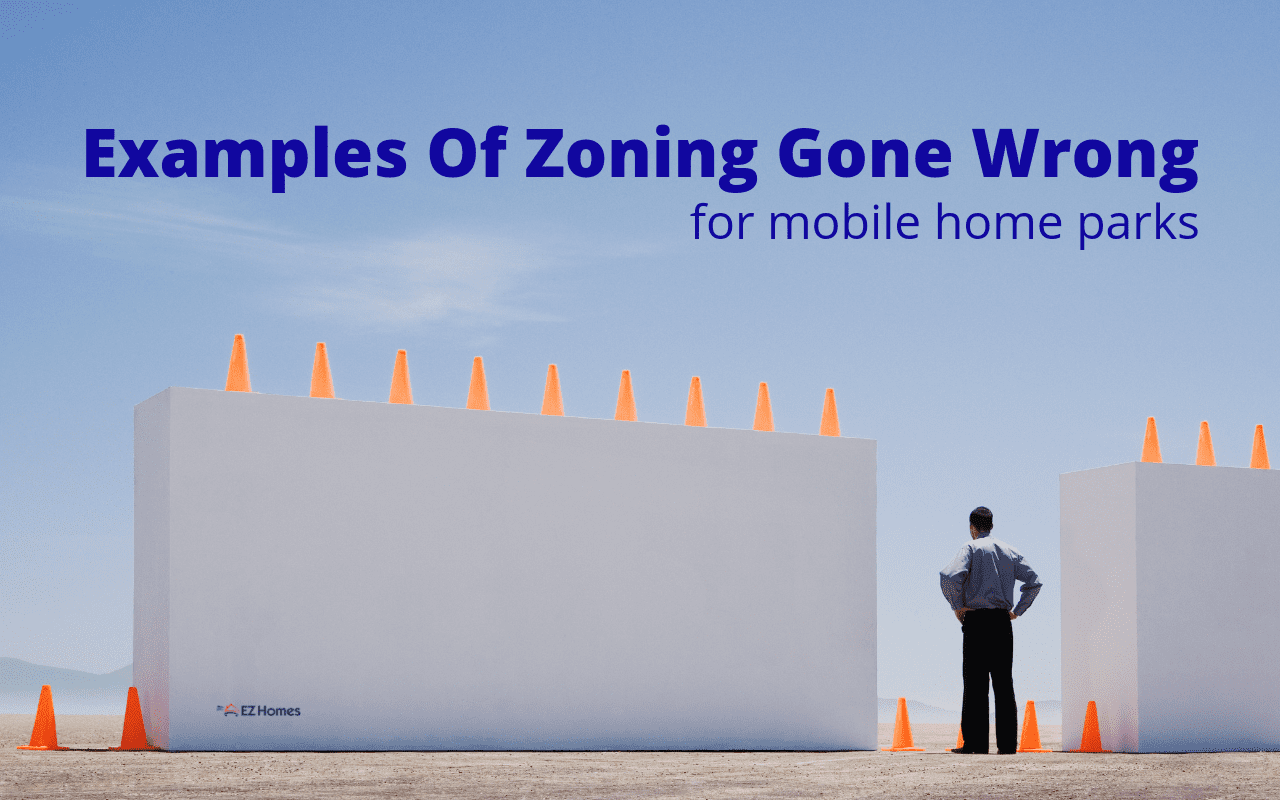For the sake of transparency, we’re going to look at some real-life stories of zoning gone wrong for mobile home parks. It helps to look at the good and the bad of any business situation. Maybe you’ll learn a thing or two in the process of reading the horror stories of other mobile home parks.

Even the best areas in the nation can undergo some upheaval through zoning regulations.
What is “zoning?”
To those who are wondering what a zoning ordinance is, this section of the article is for you. Otherwise, feel free to move along to the heart of the article: examples of zoning gone wrong for mobile home parks.
So what is a zoning ordinance? Zoning happens when land is dividing into “zones.” Ordinances that pertain to what is permissible (or not permissible) exist for each zone. In reading up on the zoning ordinances that surround a particular location, you’ll know whether or not that land may be employed for residential or commercial use. These ordinances also play a part in detailing how any infractions on the land are handled.

For the mobile home park investor, zoning has a lot to do with whether or not you’re allowed to build a mobile home park on a particular bit of land. And if a park is permissible, it will also describe any parameters you must meet for your mobile home park to be legal with the zoning laws.
Examples of zoning gone wrong for mobile home parks
So without further delay, let’s look at those examples!
Rezoning request to accommodate for replacement mobile home denied
In Virginia, Del. Matt Fariss asked the Campbell County Board of Supervisors to rezone some property. The purpose of his rezoning request was so that he would be allowed to install and rent out another mobile home on that parcel of land. As of Jan. 5, three non-vacant mobile homes are on the property.
Fariss invested in the property about two years ago. One home on the property is rented out to an insurance company. He wished to place a mobile home on the exact location where he had once removed one. The property itself does not adhere to today’s zoning regulations. This is because the mobile home park was in place before the zoning regulations appeared in the 1980s. The board of supervisors denied Fariss’ request.
Determined developers in Dayton
In Dayton, OH, a development firm is requesting to rezone a piece of property. This would allow the building of a manufactured home park that could be home to 300 mobile homes. If you go back in time, you’ll see that developers tried to set up a mobile home park in the 1980s in that very location. Due to opposition from neighboring property owners, the mobile home park never came into fruition.
Fast forward to today and things look different — or do they? The new developers are hoping to rezone the property to allow for a mobile home park. About 101 acres total, the developers believe the site is conveniently located to become a thriving mobile home park. But will the zoning issue be met with resistance from neighbors and city officials? Only time will tell if the large investment was for naught.
Seattle seniors place their hope in zoning
Over in Seattle, the city is down to two mobile home parks.
One of the two parks, Halcyon Mobile Home Park, is in danger of being torn down. A real-estate developer has plans to “replace the 76-home site with about 200 new townhouses.” Of course, this is devasting to the people who call this mobile home park, home.

Over 80 seniors and disabled persons would be displaced and possibly homeless if this development plan comes to pass. The mobile home park residents are hoping to secure their homes by having the town create a zoning ordinance that would designate the property for mobile home purposes only.
Zoning matters — it can make or break a mobile home park
So what’s the takeaway lesson? Before you make an investment on any parcel of land, make it a point to go over the zoning regulations for that parcel. By neglecting to do so, you could cause yourself (and possibly future tenants) much grief.
We’re not out to make you fearful, but want to emphasize the importance of doing your due diligence. For more on mobile homes in the news, we have some great examples of mobile homes and their place in helping people in the wake of disaster. Mobile homes provide shelter to people in both the good times and in the bad times.


